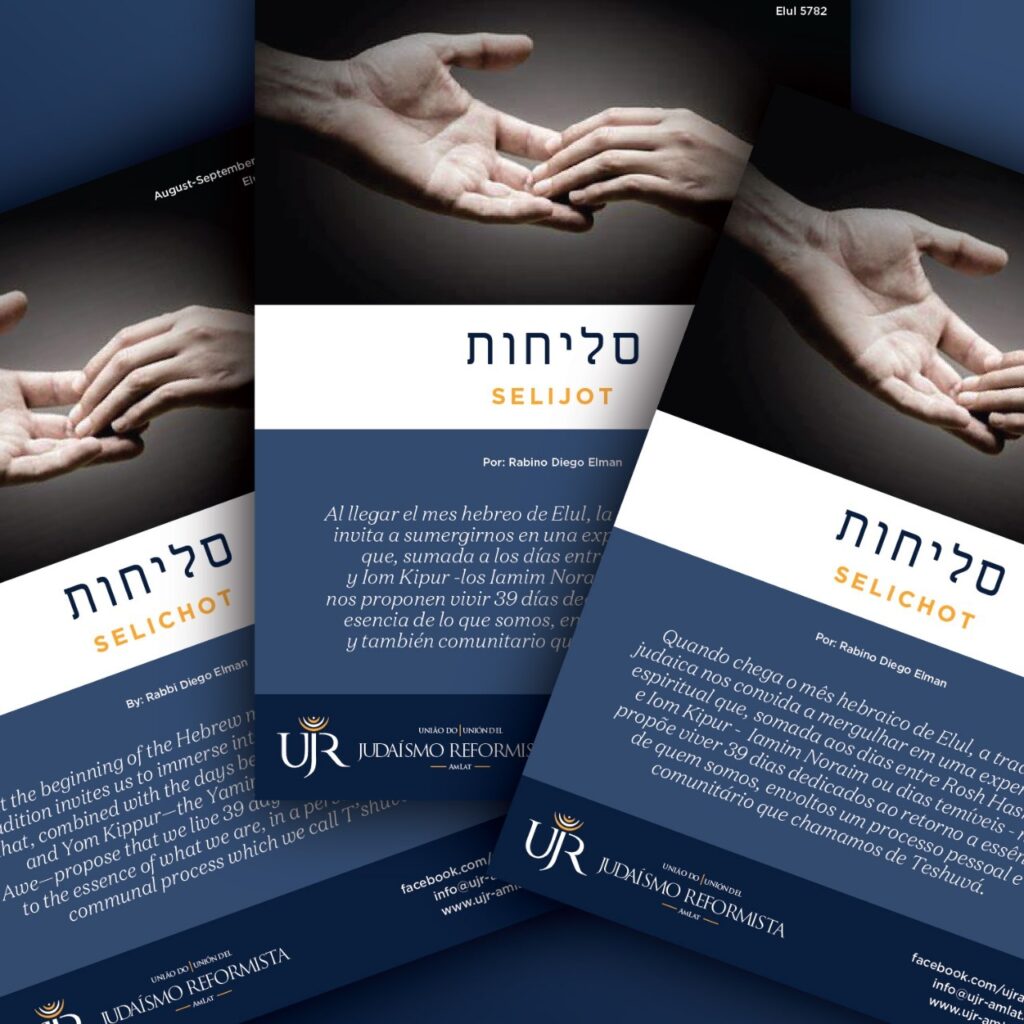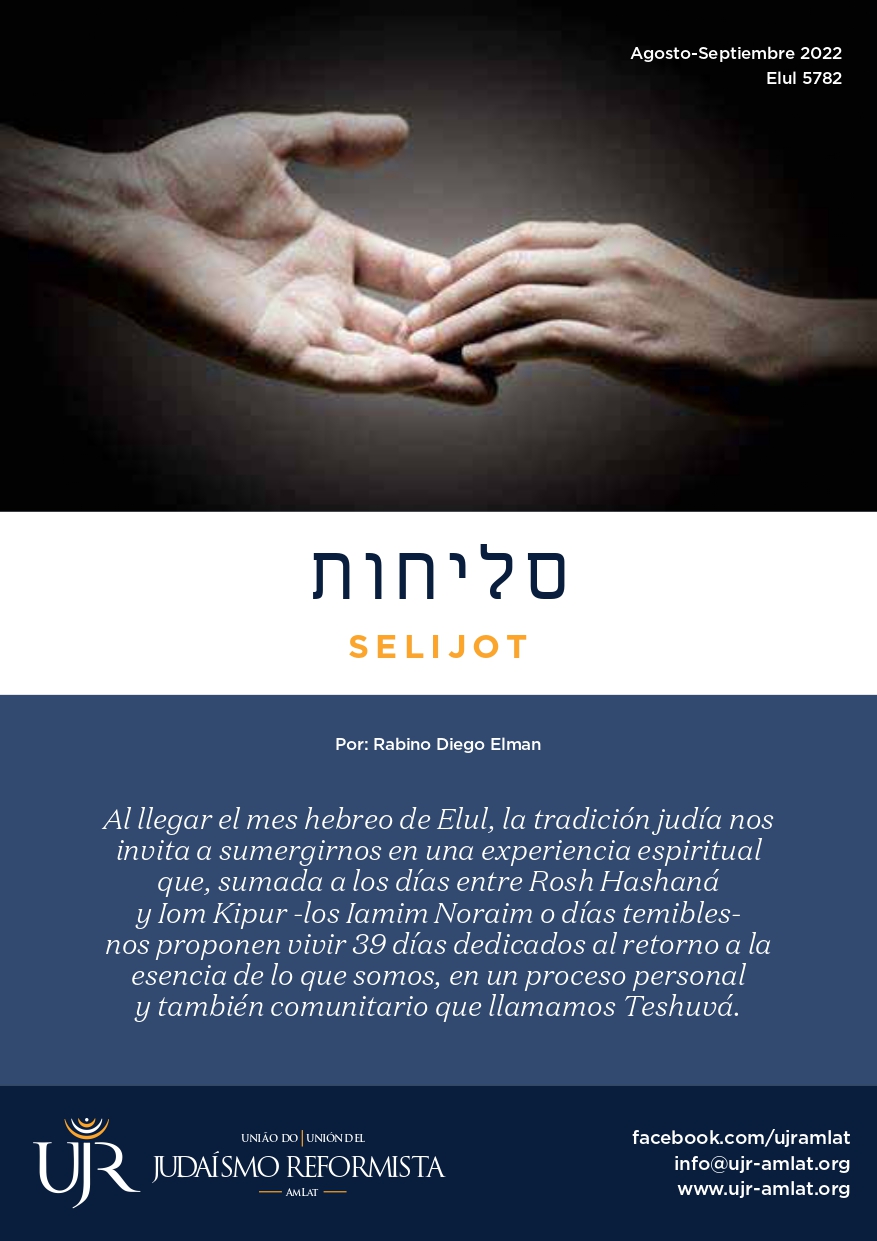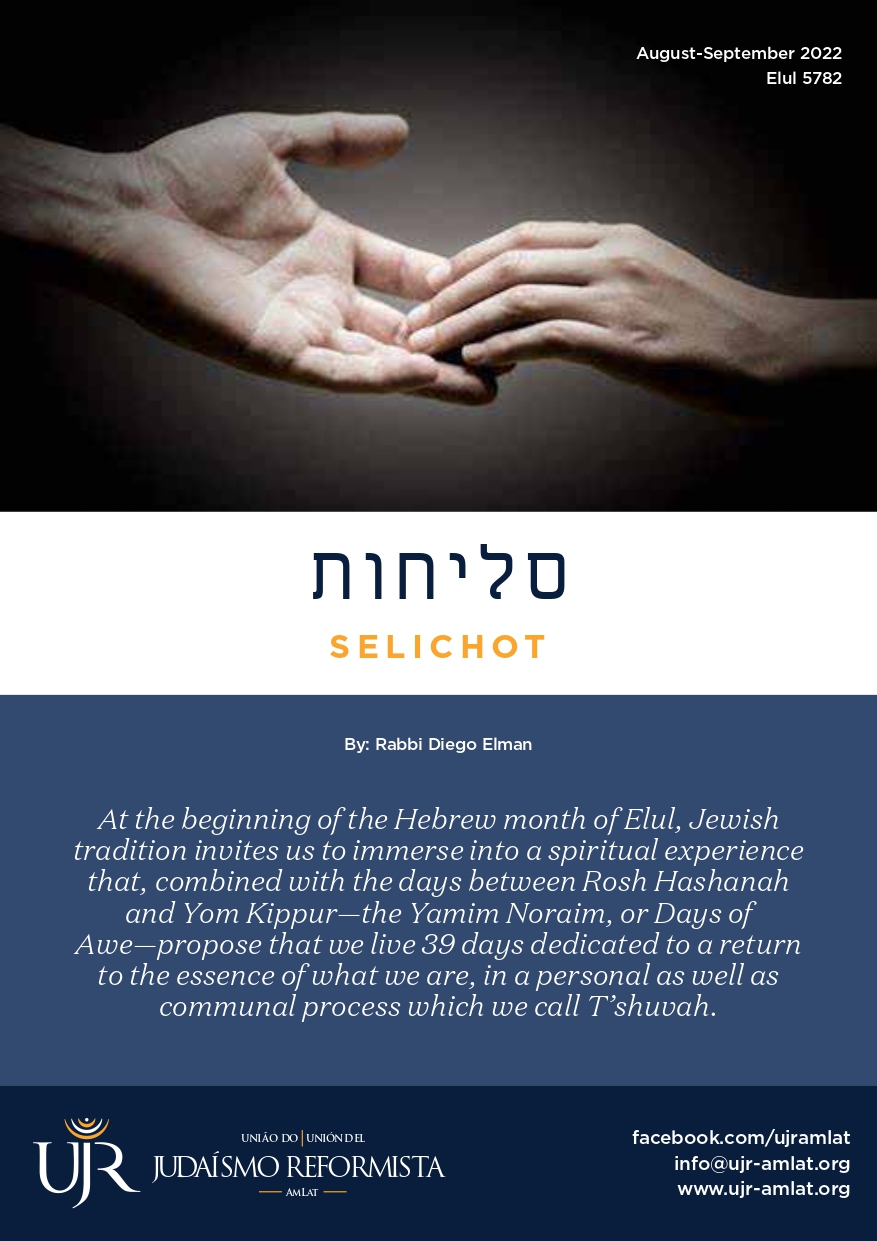At the beginning of the Hebrew month of Elul, Jewish tradition invites us to immerse into a spiritual experience that, combined with the days between Rosh Hashanah and Yom Kippur—the Yamim Noraim, or Days of Awe—propose that we live 39 days dedicated to a return to the essence of what we are, in a personal as well as communal process which we call T’shuvah.
The word “T’shuvah” has several meanings: repentance, return, and response.
As a religious tool and practice to develop repentance, since the beginning of the month the Sephardi world adds the Selichot prayers prior to the beginning of each workday’s morning prayer service, and the Ashkenazim do so since the end of Shabbat prior to Rosh Hashanah until (as long as that leaves at least four days) in which, as in a stairway to Heaven, we climb in spirituality and fervor until the day in which these prayers are most relevant: the day of atonement, Yom Kippur. Selichot is a ritual which attempts to help us progressively soften our hearts. As written by prophet Ezekiel (36:26): “I will remove the heart of stone from your body and give you a heart of flesh.” Maybe that is what this trip that we take at this time of year is all about: transforming the core of our existence and making it flexible, more alive, permeable, curious, open. It is a work that is completed little by little, step by step, because the circumstances of life, the problems, our fears, and our (sometimes excessive) need to protect ourselves try to make our hearts hard again, as if they could be shielded. This process is slow, but it needs to be constant, and that is why we take all so many days to try to achieve it. We do so with prayers, yes, but not just as a ritual or only with God. Thus, the Selichot days are also an invitation to try to turn them into concrete action in favor of others.
Selichot, our pleadings for forgiveness, have systematic steps and the pressing need to recognize, publicly and with honesty, our mistakes; it also requires seeking to offset the evil that we have done, or trying to minimize the possibility that even more damage will ensue; as well as asking for forgiveness from those whom we have harmed; and, finally, not to keep walking down the path that led us to harm others in the first place.
We have to face those to whom we owe an apology and earnestly ask for forgiveness. That includes those around us whom we might have hurt unconsciously, without even knowing it. That is an act of bravery and, in these days, also a bold attitude, seen as owning up to one’s mistakes is socially seen as a weakness or a display of vulnerability. Over time, and usually too late, we learn that it is in fact the opposite, in addition to feeling truly liberating.
If apologizing is a proof of humility, forgiving is perhaps an even greater challenge. However, going back with a lit ember that burns our hands is not exactly the best plan to start off a new year. We must rid ourselves of our grudges, not just of our faults.
This work, clearly, is not easy and, seen from the perspective of one who analyzes one’s past and one’s negative deeds, could be negative and painful. However, without forgetting that this part of the task may feel thankless, I believe that it is also important to highlight that its purpose is to make the journey ahead truly enjoyable, good, and successful for ourselves and for those around us. What could be better than distancing ourselves from that which does not enrich us, finding the good path, and renewing ourselves for the better?
This is the exercise of T’shuvah, which requires strength, but above all commitment and honesty.
It is said that Rebbe Zusha of Hanipol, when in the days of Selichot, sat in his chair, with his Hasidim standing near him all day, from morning till late at night. He raised his eyes and his heart to Heaven and rid himself of all earthly binds. Upon seeing him, one of his Hasidim was taken by the desire to repent and his tears fell through his face. And just like a burning ember lights up the other embers near it, so too did every man near that Hasid end up being lit up by the flame of repentance. At that point, the Rebbe looked around and laid his eyes on them. Once again, he raised his eyes and said to God: “Master of the world, this is, surely, the moment to repent. But you know that I do not have the strength to do acts of penance. Thus, please accept, as my atonement, my love and my shame.”
Chodesh Tov.
Rabbi Diego Elman
—





